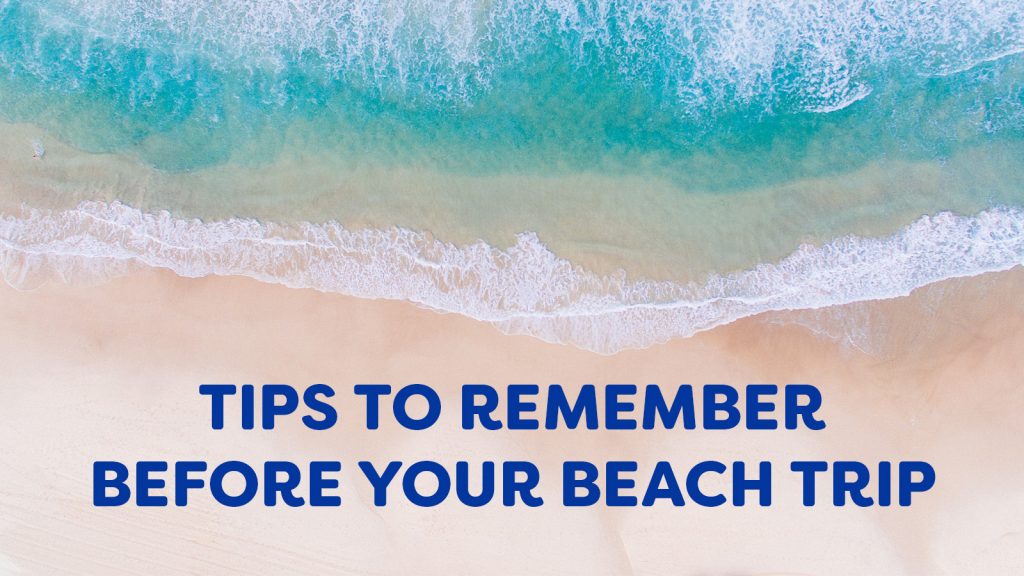13 Things to Remember Before Heading to the Beach
Here at Training 4 Safety, we are passionate about all types of safety, not just safety in the workplace. Here are some tips to keep in mind when planning a fun day at the beach this Summer.
WATCH FOR WARNING FLAGS
Be sure to familiarise yourself with the different flags found on New Zealand beaches and the meanings they signify. If you are at a beach patrolled by Surf Life Saving NZ, make sure to swim between the red and yellow flags. If it is not safe to swim, the lifeguards will warn you if they see you swimming in unsafe areas.
CHECK THE WEATHER
Make sure to check out your local weather forecast. Metservice is a helpful place to look, or you can check the news on the TV, radio, or in the paper. If it’s very windy there could be big swells and the waves could make it unsafe to swim. If you’re looking to surf, make sure you stay aware of what the weather is doing so you don’t get caught in anything unexpected.
KNOW HOW TO SWIM
If you’re going to swim in deep or rough water, make sure you are a confident swimmer. It is easy to panic and lose control when out in the water, and sadly, that’s how a lot of drownings occur. It is important to give your family swimming lessons from a young age so they can learn how to be confident in the water.
WATCH FOR RIPS AND STRONG CURRENTS
Rips are dangerous for swimmers as they can carry you out to deep waters. If you try and struggle your way out of the current, you can lose a lot of energy. You can tell if there’s a rip because it will look like a more flat, calm stream running through the water, and waves might crash around it if its rough. Rips are common in areas where there are rocks, jetties, or anything jutting out from the shore.
WATCH OUT FOR SWIMMERS NEEDING HELP
People who are at risk of drowning may not be able to call or wave for help, so also keep an eye out for people whose heads are low in the water, tilted back with their eyes closed, or who are trying to swim but don’t seem to be making any progress.
BE AWARE OF THE WAVES
Waves can cause serious damage if you are tumbled around in one. Broken bones including the neck and spine are common from injuries sustained by waves. Waves that break onshore, rather than out in the water, are particularly dangerous. I remember when I was a little kid at Whangarei’s Ocean Beach being tumbled about in the waves and it was one of the scariest experiences 8 year old me had lived!
DRINK WATER!
Extended exposure to heat and the relaxing effects of waves can easily lead to disorientation and reduced energy. Be sure to bring plenty of water and snacks down to the sand with you and use them.
Heatstroke is caused by prolonged exposure to high temperatures and is very dangerous and can be fatal. Drinking water and staying cool can help.
APPLY SUNSCREEN
Just one blistering sunburn in childhood or adolescence more than doubles a person’s chance for developing melanoma later in life. Racking up more than five sunburns at any age also doubles the risk for melanoma. Keep safe by applying the highest SPF sunscreen available, and make sure you have a source of shade — hats, umbrellas, tents — readily available (especially during the sun’s peak hours of 10am to 4pm). Remember — eyes can get sunburnt, too, so don’t forget some sunnies. New Zealand’s sun is much more harsh than any other country’s, so minimise your time in the sun.
WATCH FOR SUN STROKE
Sunbathing for an extended amount of time can cause some serious side-effects and may lead to sunstroke. Heat exhaustion and heat stroke can result from dehydration and extended exposure to high temperatures, so make sure to drink plenty of water (and avoid dehydrating liquids like coffee or alcohol) and stay under the shade if you get too hot. If you develop heat stroke, this is a serious emergency and an ambulance should be called, or you should be taken to the nearest emergency department.
Some symptoms of heat stroke include:
- Body temperature over 40 degrees
- Nausea and vomiting
- Severe headache
- Fast pulse
- Shallow breathing
- Feeling weak or cramps
- Not sweating despite feeling very hot
- Dizziness or feeling faint
- Confusion
- Seizures
BE AWARE OF OCEAN LIFE
Watch out for marine life by shore such as sharks, jellyfish, oysters, etc. Though we don’t have many deadly sea creatures, its always safe to be aware of what creatures can be found at your beach.
WEAR FOOTWEAR — SAND GETS HOT, TOO!
The feeling of the sand between your toes is part of the classic beach experience. But when the sun has been blaring down all day, the squishy sand doesn’t feel so great (and can even cause burns!). Be sure to bring a pair of shoes with you in case the sand gets too hot.
TAKE YOUR RUBBISH HOME WITH YOU
Keep New Zealand beaches beautiful and clean! Make sure to take your rubbish home with you so it isn’t left lying around for birds or other creatures to eat or get tangled up in. Be respectful to other people and animals on the beach, and the environment around you.
BUT MOST IMPORTANTLY, HAVE FUN!
